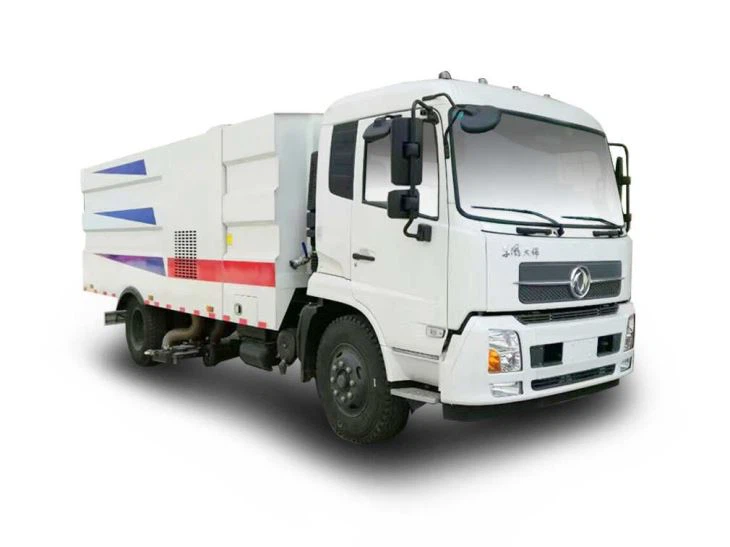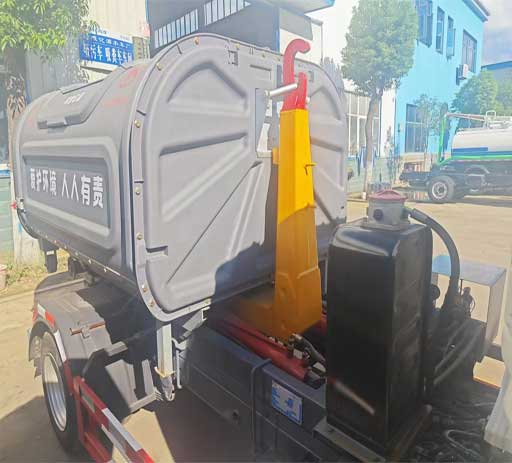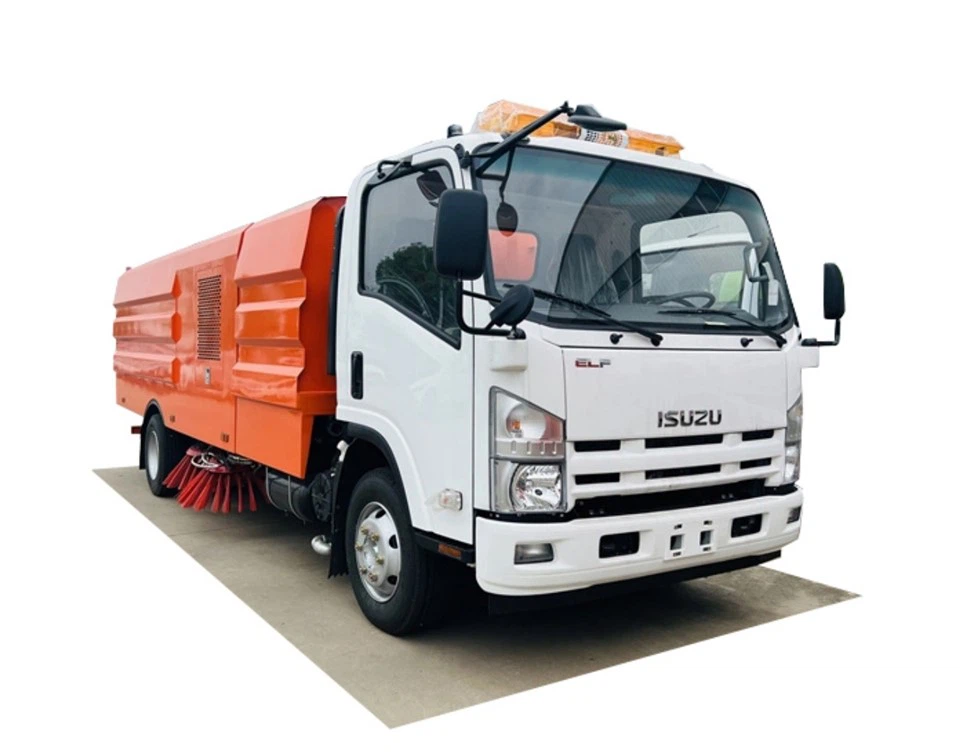Understanding Roll Off Truck Containers: A Complete Guide

Roll off truck containers are essential tools in construction and waste management. They provide a versatile solution for transporting waste and materials, making them popular among contractors, builders, and waste disposal companies. This article will delve into the features, types, uses, benefits, and other critical aspects of roll off truck containers.
What are Roll Off Truck Containers?

Roll off truck containers are large, open-top bins typically used to transport construction debris, trash, or recyclable materials. These containers are designed to be loaded and unloaded from a specialized roll-off truck by rolling off and onto the bed of the truck.
How Roll Off Truck Containers Work
Mechanism of Operation
Roll off trucks have a hydraulic system that allows the container to be lifted and rolled off the truck bed. The process generally involves:
- Positioning: The truck backs up to the designated drop-off area.
- Unloading: The truck’s hydraulic lift raises one end of the container, allowing it to roll off onto the ground.
- Retrieving: When the container is filled, the process is reversed, and the truck rolls the container back onto its bed for transportation.
Types of Roll Off Truck Containers
Roll off containers come in various types and sizes to cater to different needs:
- Open-Top Containers: Commonly used for construction debris, these bins have no lid, making it easy to load bulky items.
- Closed Containers: Enclosed bins help contain materials, preventing spillage and protecting contents from weather conditions.
- Specialty Containers: These include containers designed for specific materials, such as hazardous waste or electronics.
Common Applications of Roll Off Truck Containers
Construction Projects
In construction, roll off containers are vital for managing debris and waste. For example, when a building is demolished, contractors use large containers to collect concrete, wood, and metal debris for easy disposal.
Residential Cleanouts
Homeowners renovating their homes or decluttering often rent roll off containers to dispose of unwanted items efficiently. A typical application includes renting a container for a garage cleanout or during a major home renovation project.
Landscaping Projects
Landscapers frequently utilize roll off containers to dispose of green waste, soil, and rocks. For instance, when evacuating a site for new landscaping, these containers provide a convenient solution.
Benefits of Using Roll Off Truck Containers
Efficient Waste Management
Roll off containers streamline waste management by providing an organized way to conduct cleanups. Their large capacities reduce the frequency of required pickups, saving time and money.
Versatility
These containers are suitable for a wide range of applications, making them a versatile choice for different industries, including construction, landscaping, and home renovations.
Cost-Effective Solution
Renting a roll off truck container can be a cost-effective solution compared to multiple trips to a landfill or disposal site, particularly for larger projects.
Environmental Benefits

Proper waste disposal via roll off containers encourages recycling and minimizes landfill waste. Many companies focus on recycling materials placed in these containers, aiding in environmental conservation.
Choosing the Right Roll Off Truck Container
Consider Your Project Size
| Container Size | Typical Use |
|---|---|
| 10 yards | Small cleanouts, minor renovations |
| 20 yards | Medium renovations, landscaping projects |
| 30 yards | Large construction projects |
| 40 yards | Commercial cleanouts, large constructions |

Understand Weight Limits
Different containers have weight limits based on their size. It’s crucial to understand these limits to avoid extra charges or pickup issues. For instance, exceeding a 20-yard container’s weight limit could incur hefty fees.
Check Local Regulations
Local regulations may dictate how long you can keep a roll off container on your property and what materials are acceptable for disposal. Always check with local authorities or your provider.
Renting a Roll Off Truck Container
Finding a Rental Company
Research local waste management companies that provide roll off container rentals. Look for companies with positive reviews, and check if they have the right size available for your needs.
Understanding Rental Fees
Rental fees can vary based on size, duration, and weight. Here’s a breakdown of what to expect:
- Base Rental Fee: This is the cost associated with renting the container for a specified duration, typically ranging from 7 to 14 days.
- Weight Overages: Charges incurred if the weight exceeds the container’s limit.
- Environmental Fees: Additional fees to handle or recycle certain materials may apply.
Scheduled Pickup and Drop-off
When renting a roll off container, coordinate with the rental company for delivery and pickup times. Providing clear instructions on where to place the container can streamline the process.
Maintenance of Roll Off Containers
Regular Inspections
Periodic inspections of your roll off container can prevent issues. Check for:
- Cracks or damage to the bin
- Rust or corrosion
- Cleanliness to avoid hazardous odors
Cleaning After Use
Once a container is removed, clean the area to prevent debris accumulation and ensure a safe environment.
Practical Examples and Tips
Tip for Construction Projects
Always overestimate the size of the container needed. It’s better to have slightly more capacity than to risk filling it up too quickly.
Example of Handling Contaminated Materials
When dealing with contaminated or hazardous materials, ensure you have specialized containers that meet safety requirements. For instance, if you have lead paint debris, use specifically designated containers for safe disposal.
Home Remodelling Success
During home renovations, let your contractor guide you on container sizing, as they often have a better perspective on the amount of debris expected.
Frequently Asked Questions (FAQ)
1. How long can I rent a roll off truck container?
Rental durations typically range from 7 to 14 days, but you may arrange for an extension with your rental company.
2. What happens if I exceed the weight limit of my container?
Exceeding the weight limit can result in additional fees, as most companies charge per ton over the limit.
3. Can I put hazardous waste in a roll off container?
No, hazardous waste requires special handling and cannot be placed in standard roll off containers. Check with your local waste management for appropriate disposal methods.
4. How are roll off truck containers transported?
Roll off containers are transported using roll-off trucks equipped with hydraulic systems that allow easy loading and unloading of the containers.
5. What sizes of roll off containers are available?
Roll off containers come in various sizes, typically ranging from 10 to 40 yards, to cater to different needs.
6. Can I place the container on my driveway?
Yes, but ensure to check with your rental company and local regulations concerning placement restrictions and permits.
